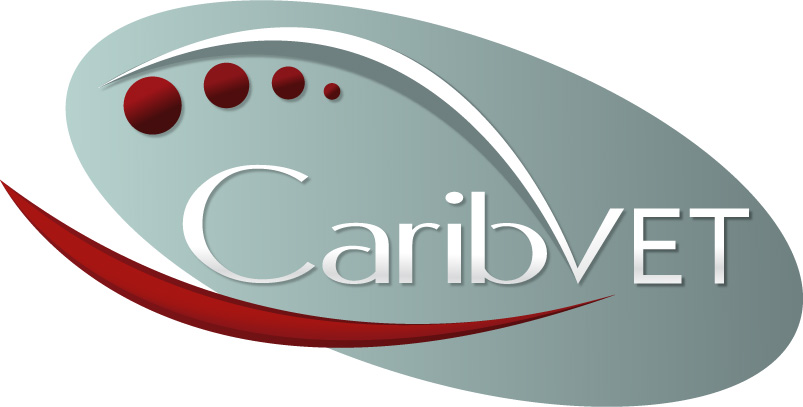Communication & Dissemination - WP4
Objectives :
- Promoting the project with the policy-makers and the public
- Providing information on the project, its progress and its achievements to the relevant target groups – scientific community, decision-makers in the field of public health, policy-makers – and the general public
- Developing a participatory and integrative process to take into account expectations/perceptions of target groups about emerging and vector-borne diseases
- Producing “ready-to-use” recommendations to decision-makers, considering most recent scientific knowledge, the needs of the population concerned, and socio-economic aspects.
Description of Activities
Task 1: Seting up of the communication and promotion tools
1/ Establishment of the Communication Plan
A comprehensive Communication Plan will be prepared to detail objectives and instruments for the entire duration of the project and to identify the targets, their perception and level of knowledge on vector-borne and emerging diseases, communication means and strategy.
2/ Setting up of the Website
The core of the communication both external and internal will rely on the project’s website. Updates of relevant information will help to establish the EPIGENESIS website as a leading news platform with updated information on each WP. Further, this part will contain commented links to other initiatives and events (European and national). In addition the website will comprise a password-protected internal site as well as a calendar with meetings, important events, analyses of progress, and deadlines. The objective, definition and structure of the website will be thoroughly described in a Technical Specifications document.
3/ Creation of a Logo of the project
A logo will be created for project’s community identification and easy external recognition of the project and increased impact. The uses of the logo will be defined in a graphic charter, and will be an integrated part of the communication strategy to improve its impact. The logo could then be used and adapted to represent the Caribbean Research Centre on emerging vector-borne diseases.
Task 2: Dissemination to targeted audiences: policy makers, decision makers and end-point users
The institutional analysis, the socio-economic studies, the roundtables with decision-makers, and the dissemination to the CaribVET network will contribute to the implementation of tasks related to the applied R&D plan targeted at vaccines and diagnostics and to the Setting-up of an ‘alert system as detailed in the WP5.
1/ Preliminary institutional analysis to enhance performance of surveillance and research
Institutional analysis by thoroughly describing the institutional environment of the project will enable to identify all actors involved and concerned by the project. It will enable to know their values, expectations, cultures as well as the link and formal/informal rules between each other that are to take into consideration in further feedback to target groups. The expected outcome is to create a new vision to motivate stakeholders and target groups to increase their awareness and the efficiency of scientific message which are delivered to eventually improve the adoption of scientific recommendations in the decisions and actions.
2/ Socio-economic studies aiming at facilitating the implementation of scientific and technical recommendations by decision-makers and end-point users.
The objective is to enable scientists to adapt their messages when delivered to decision-makers and end-point users. Socio-economic studies will take into consideration specific needs or matters related to emerging and vector-borne diseases of given target groups. The expected outcomes are:
- The development of participatory methods to enable cross-cutting global approaches and involve new forms of decision-making;
- The enhanced capacity of scientists to define ready-to-use recommendations coming out from research studies (translating technical and scientific knowledge/recommendations into directly applicable recommendations, tools/protocols by decision-makers and end point users such as veterinarians, MD, producers…).
Socio-economic studies will be used to put on the web site an interactive tool allowing stakeholders to express and debate their individual and collective representations.
3/ Roundtables with decision-makers (policy-makers, sanitary authorities and administrations) and end point users (veterinarians, MD, producers...)
This activity aims at involving decision-makers in the research process, from the beginning to the feedback of research with the coordination of the PMT. It will consist in round tables organized in parallel to SC meetings focused on the following topics:
- The stakes and issues related to the emergence of vector-borne diseases with respect to the decision-makers
- The formulation of research needs dealing with emerging and vector-borne diseases and exchanging on co-programming of research activities
- Assessing how the upgraded capacities of the Guadeloupe scientific & technological potential can be used and discussing recommendations coming out from research studies.
Participatory approach will allow the rise of emerging questions from practitioners and decision-makers to scientists.
4/ Dissemination of results to the CaribVET community
The dissemination of results to the CaribVET community will be done through the use of the communication tools of CaribVET, in particular the CaribVET website, electronic newsletter and Information Bulletin. Presentations will be given in dedicated sessions of CaribVET meetings (T&TBD and VPH working group and SC meeting). It will also take place through the following events:
- Conference CaribVET-European partners
- Workshop with CaribVET on the project of Caribbean centre of excellence on emerging and vector-borne diseases
Two scientific and technical EPIGENESIS peer-reviewed journal special issues will be developed to give more emphasis and details about projects and achievements. This journal issues will be made available to CaribVET members and partners.
Task 3: Information targeting the general public
1/ Infodays
One infoday on the project will be organised in Guadeloupe each year during the annual “Fête de la Science”. General public perception of the emerging and vector-borne diseases in Guadeloupe will be used to target the key messages to deliver during these events about prevention and comprehension of vector-borne and emerging diseases epidemiology and prevention. It includes the design of communication means (posters, slideshow, kakemono, leaflets, games...).
2/ Articles and interventions in the local press and media (radio, TV)
The PMT will seize the opportunities offered by the different meetings, workshops and conferences, the recruitment of scientists and the acquisition of equipment for communicating on the project in the local press and media. Before information days, advertisements will be made in the local media with a view to enhance curiosity and participation in the information days. The local farmer associations and vector control agencies will be involved according to the focus of the public awareness campaign.
3/ Information accessible to the public
Information about the project will be made available to the general public on the web site extranet, through the infodays and articles and interventions in the local press and media. It will also target more specifically a young public. Similar partnership aiming at popularizing and communicating on science and will be undertaken regionally with the Network for the Popularization of Science and Technology in Latin America and The Caribbean (REDPOP)
Task 4: Dissemination of results and promotional activities targeting the international scientific community
1/ Presentation of results to FAO-OIE-WHO
The results of the project will be presented to worldwide recognised international organisations in the field of animal and human health (FAO-OIE-WHO) and their regional offices in America through opportunities provided by the various meetings to which partners/scientists will participate and by their own communications means (bulletins).
2/ Meetings and exchange with RUN-EMERGE FP7 REGPOT, the Global Viral Forecasting Initiative and EDENext
Partners/scientists will catch the opportunities provided by the meetings to which they participate to exchange with other projects and networks, in particular: the REGPOT RUN-EMERGE project (La Réunion), the Global Viral Forecasting Initiative and EDENext. Website links will be also established.
3/ Presentation of results to international meetings and conferences
Several internationally recognized conferences dealing with emerging and vector-borne diseases epidemiology, bacteriology and virology will be targeted to present results of the project including:
- On vector and vector borne diseases: Tick and Tick-borne Pathogenic Conference (2014-2016), International Conference on Rickettsiae and Rickettsial Diseases (2014-2016) American Society of Microbiology (yearly), FEMS congress (2015 - 2017), ESOVE (2014),
- On viral and emerging diseases domain: EPIZONE meeting (yearly), International Congress on Infectious Diseases (ICID) (2014),
- On epidemiology and surveillance: ISVEE, Mexico, 2015, CaribVET Steering committee (yearly), EPIDEMICS (2015), Annual Meeting of the Society for Mathematical Biology and Japanese Society for Mathematical Biology (2014)
- On proteomics: European Proteomics Association (EuPA) congress, International Conference on Proteomics & Bioinformatics (yearly), 62nd American society for mass spectrometry Conference (ASMS) (2014), International Mass Spectrometry Conference (IMSC 20) (2015)
4/ Dissemination of results and promotional activities targeting the student community through masters and postmaster degree
In addition to scientific exchange, the results of the project will be used in training courses for scholars (sharing and acquisition of knowledge) and for students (improvement of masters programs with new prospects). The most recent knowledge will be considered to update courses and training provided internationally in entomology (Master courses provided in Benin and Pasteur Institutes in Paris) thank to partners of the project involved in these programmes. A link will be established with main training centres in entomology, epidemiology and infectious diseases in Europe and in the Caribbean.

